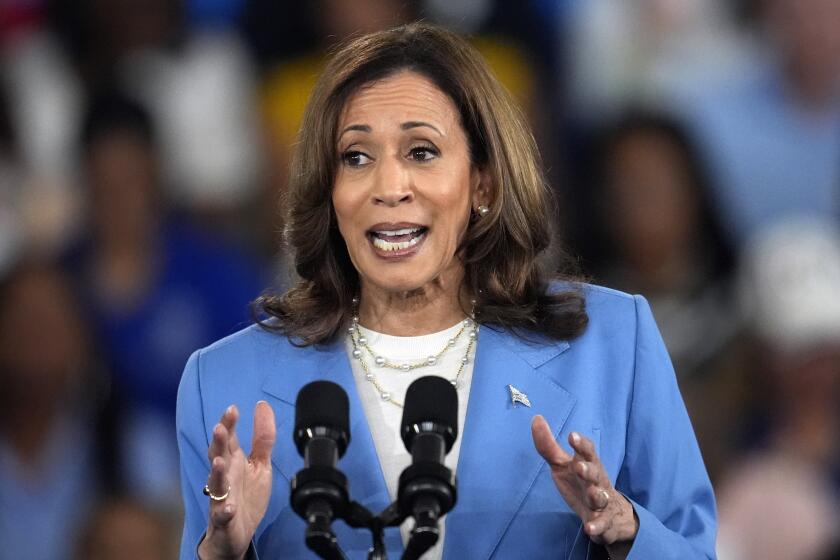House panel passes tax relief
In a sign of changing priorities, the tax-writing panel of the U.S. House on Thursday voted to hike taxes paid by managers of many investment firms, as part of a broader tax-relief plan for millions of households who would owe extra money this year under the alternative minimum tax.
The action by the House Ways and Means Committee ignited a struggle that will be played out in the coming days, as members battle over plans to prevent the AMT from hitting 23 million households this year.
More broadly, the debate Thursday was a preview of conflicts over economic policy that will be heard in the presidential campaign and after next year’s election.
The measure could be considered on the House floor next week and then move on to the Senate, where leaders have expressed opposition to the proposed tax increases.
While most lawmakers dislike the AMT, they disagree fiercely over whether to impose new taxes to pay for the $50 billion in relief. The House panel favored some new taxes, on a party-line vote in which Democrats prevailed over Republicans 22-13.
“This so-called fix is not a fix at all,” declared House Minority Leader John A. Boehner (R-Ohio) in a statement. The Democrats’ AMT patch, he said, “includes job-killing tax hikes on entrepreneurs and risk-takers who invest and create family-wage jobs for working families.”
“The American people won’t support it, Republicans will strongly oppose it, and it will never be signed into law,” Boehner said.
But Democrats, led by Ways and Means Chairman Charles B. Rangel of New York, said that fiscal responsibility demanded new revenue to offset the cost of an AMT fix.
Democrats on the panel would get that revenue from investment managers at private equity firms and hedge funds. They would require that managers of such investment partnerships pay regular income tax rates on earnings known as “carried interest,” rather than a lower, 15% capital gains rate claimed by many.
They also would block the ability of hedge fund managers and other highly paid executives from using offshore tax havens to shelter income.
Rangel and his committee allies said that such taxpayers have unfairly benefited from what he calls loopholes, at a time when many working families are struggling.
Last week Rangel unveiled a sweeping, long-term plan that would permanently eliminate the AMT while adding new surcharges on higher-income taxpayers, reduce the corporate income tax and extend a handful of tax breaks for business while eliminating others.
That plan is far too controversial to bring to a vote this year. However, lawmakers face pressure to act swiftly on an AMT fix to avoid disrupting tax filers and the Internal Revenue Service.
“Without immediate action, millions of taxpayers would be hit with a significant tax increase through no fault of their own,” Rangel said in a statement. The plan, he added, “balances tax relief and deductions with provisions to close loopholes and end narrowly targeted tax breaks to ensure that the bill does not add to the national debt.”
In contrast to Democrats, Republicans maintained that no extra cash was required under the rules. They accused Democrats of a huge tax increase, which they said would slam the economy, kill jobs and undermine entrepreneurship.
The tax hike also could apply to real estate and other partnerships, critics pointed out.
“I am worried that we are now beginning to wage a war on jobs,” said Eric Cantor (R-Va.). “This is the basis upon which our entrepreneurial growth in this country exists. . . . You are going to be impacting small business in a big way.”
Private equity and hedge funds have been aggressively lobbying Congress to preserve their tax treatment, an effort that will intensify in the coming days. They have argued that higher taxes will make the U.S. less competitive with other countries and jeopardize some of the investment that the firms make here.
“We are disappointed with the committee’s action today, and we will continue to oppose legislation to change the tax treatment of carried interest,” said Douglas Lowenstein, president of the Private Equity Council, after the committee vote. “We remain hopeful that in the end this legislation will not be enacted into law.”
Earlier this week, the Managed Funds Assn., which represents hedge funds, appealed to Rangel not to single out investment managers, noting that the House proposals could have “unintended consequences for investors, the markets and the economy.”
The AMT was enacted in 1969 to make sure that the nation’s richest taxpayers pay at least something. But because it was not indexed for inflation, millions of Americans -- generally those earning $75,000 a year or more -- could find themselves paying higher taxes under the measure unless Congress takes action.
--
jonathan.peterson@ latimes.com
More to Read
Get the L.A. Times Politics newsletter
Deeply reported insights into legislation, politics and policy from Sacramento, Washington and beyond. In your inbox three times per week.
You may occasionally receive promotional content from the Los Angeles Times.










